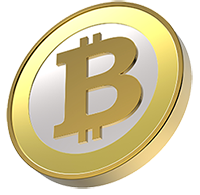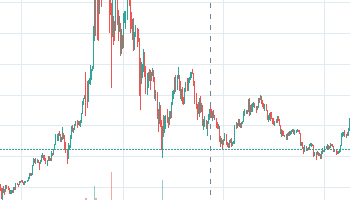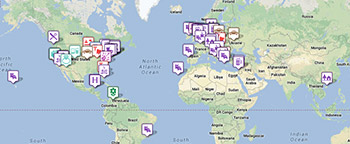It is quite understandable that there are companies that have taken their niche, have perfected all work processes, and just go with the flow. However, most conservative businessmen will get to the point where more open-minded competitors outpace them. The technology that many enterprises have been implementing lately is blockchain. It has the potential to enter and take over many industries while making life easier for company workers and customers.
It is important to note that blockchain is not limited to cryptocurrency, the possibilities of this technology are much wider. Applying blockchain helps enterprises take control of their own processes, reduce operational expenses by eliminating intermediaries, and increase efficiency. Here are the areas where blockchain solutions have already proven themselves.
Supply chain and retail
The traditional supply chain system includes an immense number of people and intermediaries on the path of a product from manufacturer to consumer. Information about the delivery of goods is recorded in tables or on paper, while the participants in the supply chain don’t communicate directly and operate as separate institutions, which makes it difficult to identify the sources of certain problems and generally trust each other.
Paper-based documentation methods are quite slow, and this is the first issue blockchain is able to solve. With blockchain technology, doc flow and cargo tracking are performed automatically, which definitely saves time and resources.
Another demand comes from consumers who want to know the provenance of the products that they purchase. Blockchain allows participants in the supply chain to trace each item to its origin and thereby satisfy the buyer's request. What's more, it lowers your enterprise's costs associated with potential quality issues such as recalls and reputational damage.
E-commerce
E-commerce businesses sell almost everything people can imagine: from stickers, pens, and apples to jewelry, refrigerators, and motorcycles. They also perform banking operations and provide numerous services. Consumers find this process simple, fast, and convenient, but behind the scenes, there is a huge number of products, a large consumer base, and enormous volumes of transactional data. Supply chain management gives e-commerce workers headaches as well.
Blockchain, with its immutable and transparent nature, displays the history of transactions that take place on e-commerce platforms. This way, the company can track the entire journey of the order from its placement online to getting into the hands of the consumer.
Many blockchain solutions involve the use of RFID tags, which help identify products using smart barcodes. At each stage of the supply chain, participants scan tags and verify the authenticity of the product. Another concern is related to the safety of customer data. E-commerce businesses have the opportunity to enhance security through data encryption available using blockchain technology.
Healthcare
The healthcare industry also requires a more efficient and reliable supply chain for prescription medicines and equipment because counterfeiting drugs or supplying faulty equipment will inevitably lead to dire consequences. While blockchain is not a panacea for disease, it can still track medical products and provide the history of the entire supply chain.
In addition, blockchain solutions offer the storage of electronic medical records based on smart contracts. Not only the doctor but also the patient will have access to health data. This reduces the time spent traveling to clinics and searching for the necessary information on computers or even in paper records.
Education
To survive in the competitive world of education and maintain a reputation for being a cutting-edge and innovative institution, schools, colleges and universities may consider adopting blockchain technology.
The first thing that blockchain-based solutions offer is the provision of advanced and transparent record-keeping. Using blockchain storage, the school creates a student record only once and then keeps it updated with grades, certificates, assignments, school activities, and competitions. The information becomes available to all participating in the education system, and later the student’s portfolio of educational achievements can be transferred to the potential employers.
In a sense, blockchain can also motivate students and teachers to achieve better results. Blockchain systems based on smart contracts can be designed to generate cryptocurrency rewards for completed tasks, research, and high academic performance. Thus, blockchain technology can bring an element of gamification to modern education and help students pay off loans, buy school supplies, and study materials.
Recruitment
Blockchain is a new technology for the recruitment industry, but it has the potential to revolutionize the way HR professionals work today. Imagine that instead of looking for previous bosses and checking certificates and diplomas of a potential employee, the HR specialist just needs to open the application and access the candidate's profile.
With blockchain technology, candidates will be able to continually update their credentials throughout their careers. This way, they will have an up-to-date, fully updated, and verified resume, which is an advantage for both recruiters and conscientious candidates.
Blockchain is still not a magic pill that is able to solve all problems at once. However, its core characteristics such as immutability, traceability, transparency, and decentralization are important features that have been lacking in many industries. At the moment, there are many success stories of blockchain implementation in different areas, for example, FinTech, real estate, social media, telecommunications, e-governance, and the automotive industry.
Before making a final decision on blockchain adoption and contacting one of the enterprise blockchain companies, it is necessary to find out if the firm provides consulting services along with the full-cycle development of a blockchain-based solution. Companies that are engaged in both consulting and implementation of the solution will always conduct comprehensive research and check if this technology is feasible and suitable in each specific business case.


 Updated every 10 minutes
Updated every 10 minutes


